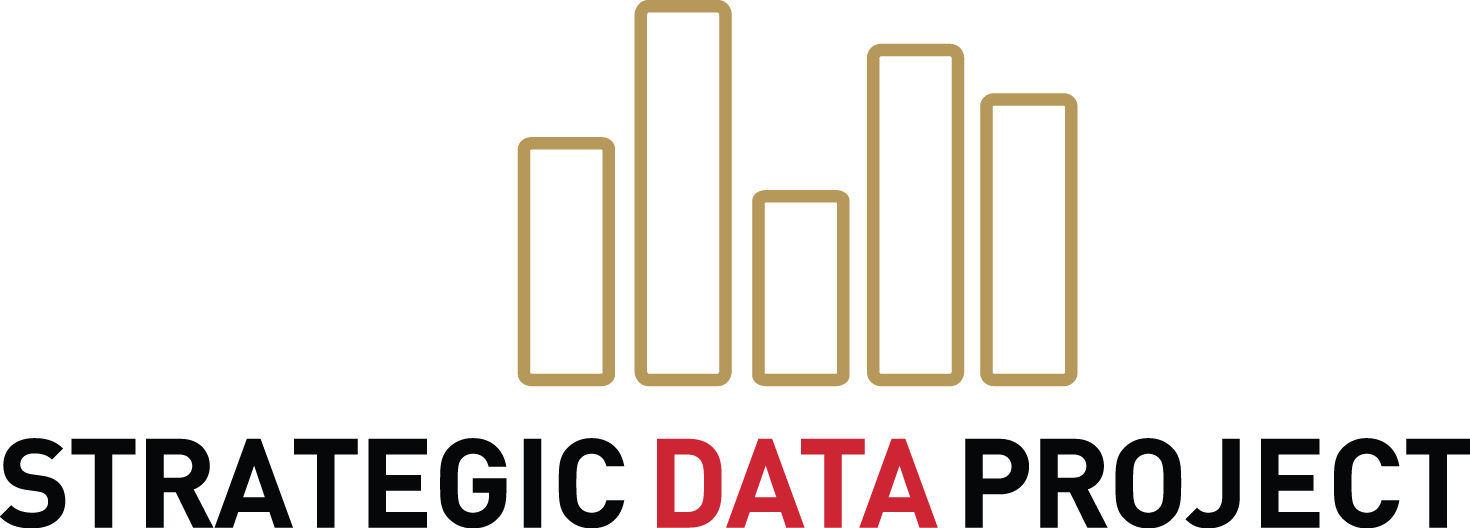 Postsecondary fellows and partner institutions team up with SDP to improve student outcomes with data.
Postsecondary fellows and partner institutions team up with SDP to improve student outcomes with data.
In 2020, with funding support from the Institute of Education Sciences, the Strategic Data Project shared insights collected from postsecondary leaders across the country regarding their work to realize the potential of data analytics to inform and transform student success. We learned that there are exciting pockets of progress and innovation, but many colleges and college systems are just at the beginning of their effort to build world class data systems and insights that will drive program improvements. Seeing the need to build a cadre of data leaders to transform institutional data use, SDP expanded its fellowship network to partner with postsecondary institutions and organizations and build capacity to use data to transform college and workforce outcomes.
We began with support from the ECMC Foundation to launch a program for data leaders at community and technical colleges who would investigate CTE programs at postsecondary institutions (SDP-CTE ECMCF Fellows). Understanding student pathways to and through postsecondary certificate and credential programs has never been more important. The COVID-19 pandemic was in full swing when the first cohort embarked on their fellowship in fall 2020. Our new partner institutions were grappling with new challenges facing so many community and technical colleges across the country, as well as existing concerns that were exacerbated by the pandemic. While we knew that postsecondary institutions had rich data about the students they served, the barriers to effectively assembling, analyzing, and communicating about the data became far greater. Yet, every participating fellow and partner organization seized the opportunity to understand the barriers to student success in CTE and the workforce, illuminating how, when postsecondary organizations have access to support and training, they can generate insights beyond compliance reporting and pursue strategic projects that drive key programmatic decisions. Here are just a few examples of exciting projects executed by our fellows:
Understanding Barriers to Academic Success
At Holyoke Community College (HCC), Dr. Veena Dhankher and Jeffrey Hayden integrated previously unanalyzed data on non-credit students to better understand the course enrollment and success patterns among students who enroll only in a few classes to “skill up” and are not seeking a formal degree or certificate.
Knowing that retention and completion are important measures of student success and achievement, Dr. Dhankher and Hayden analyzed student outcomes in CTE programs across demographic subgroups. They found, among other things, that male CTE students, White, non-Pell recipients, younger students (under 25 years of age), and full-time students tend to graduate at a higher rate within 150% of normal time than their peers. Their analysis generated a list of significant predictors for students who are at-risk of not returning to complete their programs at HCC, which advisors and student support staff will leverage to create interventions for these students. Further, these new predictors will allow for HCC to identify programs to expand, eliminate, and create to meet the demand of the job market and prepare students for employment.
Leveraging the SDP Network to Overcome Barriers
Dr. Alan Phillips and Samantha Zulkowski at Delaware Technical Community College (DTCC) undertook an ambitious project as they set out to link DTCC’s institutional data to state unemployment insurance (UI) data. DTCC had recently executed a data sharing agreement with the Delaware Department of Education, providing them with individual-level labor market outcome data so they could assess student workforce outcomes from each of DTCC’s degree pathways. Ultimately, they hoped to better understand DTCC’s ability to be responsive to the labor market needs, as well as whether students were accessing employment opportunities equitably.
“Thanks to the support we received from the Harvard SDP, we were able implement a research plan focused on CTE student outcomes that brought together a number of variables that had not previously been considered in Delaware,” said Phillips.
As part of our SDP-CTE Fellowship, Phillips and Zulkowski were matched with a faculty advisor, Dr. Shaun Dougherty, the Associate Professor of Public Policy & Education at Vanderbilt University’s Peabody College of Education & Human Development at the time of their project (currently Professor of Education & Policy at Boston College’s Lynch School of Education & Human Development). Dougherty, who had recently published a paper using similar data in Tennessee, supported the fellows as they navigated this complex analytic project.
“Through working with our mentor, we were able to better understand what events in a student academic career have the most important impact on success indicators such as year-to-year persistence and graduation,” said Zulkowski. “We were also able to look at how this may vary among different programs. This information then can help leadership strategize on where to effectively deploy student supports and resources.”
After analyzing DTCC students’ program persistence and completion, they found early momentum metrics (such as number of college credits obtained in the first semester) and persistence among the aggregate CTE population are significant predictors of graduation, transfer, and enrollment. Leveraging the importance of these early metrics allows DTCC to move beyond descriptive analytics and adopt a new data strategy to intervene early and better support students.
Using Evidence-Based Resource Allocation to Support Student Success
At Nashville State Community College (NSCC), Dr. Sarah Roberts and Charles Clark took on a project to build a predictive analytic system to better target a new, robust set of student supports on campus. A generous grant from JP Morgan Chase presented an opportunity to accelerate the development of career pathways to support the transition of underrepresented students from Metro Nashville Public Schools into NSCC. As a result of this grant, the college introduced a number of new student support initiatives.
Dr. Roberts and Clark built a data infrastructure to ensure that they were delivering these services most effectively to those students most in need of additional support. Along with the new predictive analytic model, they also developed a detailed plan to roll out the model to NSCC staff.
“Through the SDP network, we were able to build an equity-centered predictive model that not only provides insight into who our opportunity students are but has helped us identify other data and information that we must develop to advance our persistence and completion work,” said Clark. “As a result of the project, we have developed a brief intake survey that captures additional data on an applicant's background that is not on their application so that we are ready to meet the student's needs, academic or otherwise.”
Continuing to Strengthen Institutional Capacity
SDP continues to work with postsecondary data teams across the country. With the support of the Bill and Melinda Gates Foundation, we launched a two-year fellowship program for higher education organizations committed to improving student success more broadly. We also look forward to continuing to work with the ECMC Foundation's Leadership Collaborative to develop the next generation of CTE data leaders in higher education. To date, we have trained 52 postsecondary fellows across the country in rural and urban colleges and nonprofits – and found that these new partner organizations and fellows, when provided with analytic training and professional mentorship, were ready to take on pressing challenges related to student success in the current climate and help strengthen the capacity of institutions to use data strategically for the foreseeable future.
Learn more about partnering with SDP.
SDP thanks the ECMC Foundation and the Bill and Melinda Gates Foundation for its support launching its first postsecondary fellowship programs.
